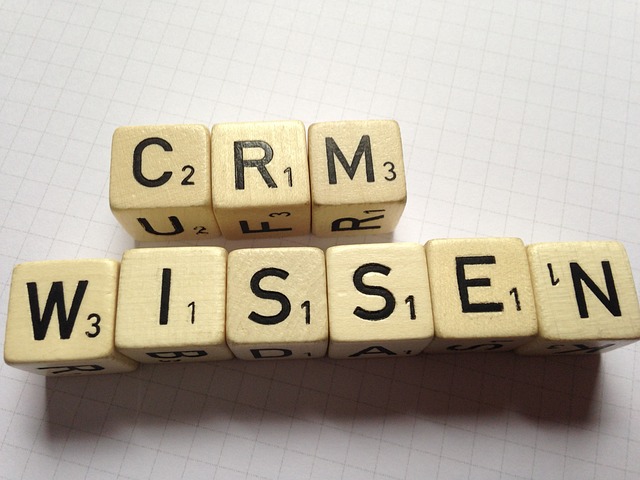The Importance of Customer Relationship Management in Your Side Business
When you venture into the world of entrepreneurship, especially with a side business, you quickly learn that building strong relationships with your customers can mean the difference between success and failure. This is where customer relationship management (CRM) comes into play. CRM systems and strategies play a pivotal role in nurturing customer interactions, optimizing communication, and ensuring customer satisfaction. As you explore the depths of CRM, you’ll find its significance embedded in various facets of your side business, contributing to growth, sustainability, and long-term success.
First, let’s talk about what CRM actually is. Customer Relationship Management is more than just software; it’s a philosophy. It consists of practices, strategies, and technologies that companies use to manage and analyze customer interactions throughout the customer lifecycle. This approach aims to improve customer service relationships and assist in customer retention while driving sales growth. For a side business, adopting CRM principles allows you to understand customer needs better and offer them a tailored experience. When you know who your customers are and what they value, you can create meaningful relationships that lead to brand loyalty. This is invaluable for small-scale operations where word of mouth can be a significant driver of business.
The immediate benefit of implementing a CRM system is increased organization of customer data. With diminishing chances of making mistakes or losing crucial information about customer preferences, you’d notice your side business transforming into a more efficient operation. Imagine having a centralized hub where you can access each customer’s purchase history, previous communications, inquiries, and feedback at the click of a button. This feature enhances your ability to respond promptly to customer queries, ensuring customers feel valued and heard. The streamlined communication doesn’t just improve response times; it also builds trust. Over time, as customers recognize your business’s reliability, they are more likely to repeat transactions, thus boosting your side business revenue.
Moreover, CRM solutions often come equipped with analytical tools that give you insights into customer behavior and market trends. These insights empower you to tailor your offerings and marketing strategies effectively. For instance, by analyzing purchasing habits, you can create targeted marketing campaigns that appeal directly to your customers’ interests. As a side business owner, you may not have the same resources as major companies, but data analytics through CRM provides you a local perspective. It’s like having a crystal ball that helps you predict what your customers will want next. This foresight lets you stay one step ahead of competitors who might still be operating on general assumptions or outdated strategies.
Another underrated aspect of implementing a robust CRM system in your side business is the ability to automate communication. In today’s fast-paced environment, people appreciate efficiency and punctuality. With CRM, you can automate follow-up emails, reminders, newsletters, and promotional offers without lifting a finger each time. This not only saves time but ensures a consistent interaction level, reinforcing customer relationships. For example, sending personalized birthday wishes or special discounts can significantly increase customer engagement. Such gestures go a long way in maintaining positive relations and encourage customers to return. Furthermore, they feel valued and respected, which enhances their overall experience with your brand.
On top of these advantages, CRM systems enhance collaboration among your team members. In a side business, you might collaborate with freelancers or a small team. A shared CRM platform allows real-time updates and transparency. This means everyone stays informed about client interactions, progress on projects, and changes in customer preferences. Imagine a scenario where a team member speaks to a customer unnoticed by others—miscommunication can lead to confusion or frustration. With CRM, all relevant information is right at hand for any team member handling customer inquiries, resulting in a seamless customer experience.
While we often discuss the benefits of CRM systems, it’s essential to recognize the various types available, each tailored for different needs. For side businesses, choosing a CRM designed for smaller operations can be financially savvy. Many CRM platforms cater specifically to entrepreneurs, offering essential features without overwhelming complexity. Popular choices often include systems like HubSpot CRM, Zoho CRM, and Salesforce Essentials. Each of these comes with pricing tiers, allowing you to select a plan that fits your budget while meeting your operational requirements. Opting for a tailored solution ensures that you obtain maximum value without incurring unnecessary expenses.
It’s vital to remember, however, that CRM is not just a tool—it requires commitment. You can’t simply install the software and expect it to perform miracles. You and your team need to embrace the CRM philosophy fully. Invest time in training your team on how to use the system, input information regularly, and leverage the insights generated. Regularly reviewing your CRM processes also promotes continuous improvement. Analyze what works and what doesn’t, adjusting your strategies accordingly. Fostering a culture focused on customer satisfaction will help embed these practices into your business operations.
Engaging with your customers through the CRM system provides a platform for collecting feedback, which is critical for growth. A side business thrives on its ability to adapt and evolve based on customer needs. By incorporating feedback mechanisms, such as surveys or informal check-ins, your customers feel heard. More importantly, you gain insights that can highlight areas for improvement. If customers express desires for specific products or services, you can act on this information, addressing their needs proactively. This responsiveness enhances customer trust and loyalty—an asset any side business cherishes.
As we dive deeper into the effects of effective CRM in a side business, consider how it influences marketing efforts. Targeted marketing becomes significantly easier with effective CRM tools. By segmenting customers based on various factors, such as demographics or buying behavior, you can craft tailored marketing campaigns. Particularly for side businesses, focusing your marketing efforts on the right audience maximizes your budget. Instead of casting a wide net, target the individuals who will appreciate your products or services the most, driving more relevant traffic to your business.
As much as CRM is about technology, it is equally about the human element in business. Customer relationships hinge on understanding empathy and trust. Implementing a CRM system cultivates an environment where each customer feels valued. By utilizing automated systems to send personalized messages or reminders, you maintain a personal touch. When customers notice that you care about their needs and preferences, they tend to develop a stronger emotional connection to your brand. This aspect can be a game-changer for side businesses, as emotional connections often translate into customer loyalty.
Finally, as your side business scales, the benefits of having a CRM system become exponentially more pronounced. As customer interactions increase, so does the complexity of managing those relationships. A robust CRM system scales with your business, accommodating additional customers and offering you deeper analytical insights. Whether you’re adding new products or exploring different marketing channels, a CRM system gives you the flexibility and capacity to handle growth efficiently. In essence, a well-chosen CRM is a long-term investment in the future of your side business.
FAQ
What is customer relationship management (CRM)?
Customer Relationship Management (CRM) is a strategy that companies use to manage interactions with customers. It involves using data analysis to understand customer behavior and improve business relationships. CRM systems help businesses streamline communication, improve customer service, and increase sales.
How can CRM benefit my side business?
CRM can benefit your side business by organizing customer information, automating communication, providing analytical insights, and fostering strong relationships. It enhances customer satisfaction, drives repeat business, and helps you understand and predict customer needs more effectively.
Are there affordable CRM options available for small businesses?
Yes, there are many affordable CRM options specifically designed for small businesses. Platforms like HubSpot CRM, Zoho CRM, and Salesforce Essentials offer features that cater to smaller operations at a reasonable price, enabling side businesses to utilize advanced tools without heavy investment.
Is it tough to implement a CRM system in a small side business?
Implementing a CRM system can be straightforward with proper training and commitment. Choosing a user-friendly CRM and dedicating time to set it up effectively will greatly ease the integration process. It’s essential to involve your team and ensure they understand the importance of using the system regularly.
How do I measure the effectiveness of my CRM?
You can measure the effectiveness of your CRM by tracking metrics such as customer retention rates, sales growth, response times to customer inquiries, and customer satisfaction scores. Regularly analyzing these metrics will help you assess how well your CRM system is contributing to your side business’s overall performance.



